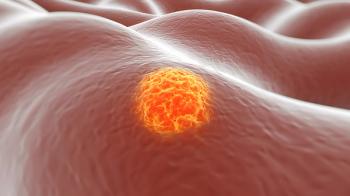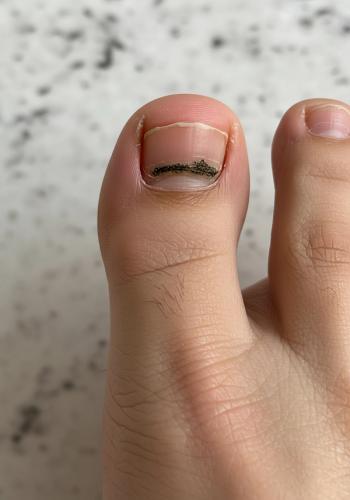
Next-Gen Oncolytic Virus Shows Potential to Treat Advanced Melanoma
The combination of RPI, a genetically engineered herpes simplex virus type 1, and Opdivo shrank both injected and non-injected tumors by 30%.
In a trial of a genetically engineered herpes simplex virus type 1 (HSV-1), along with the Opdivo (nivolumab), one-third of the patients with advanced melanoma had their tumors shrink by at least 30%, and nearly one out of six patients had tumors completely disappear. The results of this trial were
“These findings are very encouraging because melanoma is the fifth most common cancer for adults, and about half of all advanced melanoma cases cannot be managed with currently available immunotherapy treatments,” Gino Kim In, M.D., a medical oncologist with Keck Medicine and principal investigator at the Keck Medicine clinical trial site, said in a
More than 100,000 new melanomas will be
The IGNYTE trial enrolled 140 patients at sites worldwide who had advanced melanoma that did not respond or stopped responding to immunotherapy. Patients were treated with Replimune’s RP1 in combination with Opdivo.
RPI (vusolimogene oderparepvec) is a cancer immunotherapy class known as oncolytic viruses that infect and kill cancer cells. One such therapy is currently FDA-approved and available on the market — Amgen’s Imlygic (talimogene laherparepvec), which is also a genetically engineered HSV-1 approved in 2015. Imlygic is injected directly into the tumor, which triggers an immune response.
RPI contains a strain of herpes simplex virus engineered with a protein that assists with fusion (GALV-GP-R-) and granulocyte-macrophage colony-stimulating factor (GM-CSF), a cytokine intended to maximize tumor-killing potency.
RPI is also administered directly into the tumor. It then replicates and kills cancer cells while also stimulating the body’s white blood cells to seek out and destroy any other cancer cells in the body. Researchers theorized that Opdivo, which works by using the body’s own immune system to fight and destroy cancer cells, would enhance the potential effect of RP1.
During the clinical trial, patients were given a combined therapy of RP1 and Opdivo every two weeks for up to eight cycles. If patients responded to the treatment, they continued on Opdivo alone every four weeks for up to 30 cycles (or two years).
Researchers found that not only did injected tumor size shrink in one-third of the patients by 30%, but also that patients’ uninjected tumors also shrank or even disappeared. In the trial, the objective response rate (ORR) was 32.9%. The overall survival (OS) rate was 75.3% at 1 year, 63.3% at 2 years and 54.8% at 3 years. There was a ≥30% reduction in 93.6% of injected tumors and 79.0% of non-injected tumors.
Patients experienced higher objective response rates after receiving deep injections compared with superficial injections only. Deep responses were observed in injected and non-injected tumors.
Biomarker analysis demonstrated broad immune activation associated with response. The safety profile was favorable, with mostly grade 1/2 adverse events.
A phase 3 trial, IGNYTE-3, is under way to confirm these findings and is expected to enroll more than 400 patients. A separate trial is under way to assess RP1 in other non-melanoma skin cancers, including Merkel cell carcinoma, basal cell carcinoma and angiosarcoma, according to
Newsletter
Get the latest industry news, event updates, and more from Managed healthcare Executive.























